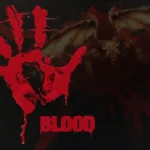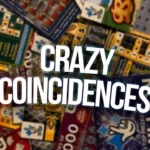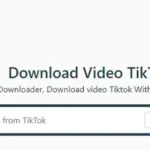Introduction: What Is Bo’ness Natters?
Bo’ness Natters is a vibrant and active Facebook community group based in Bo’ness, Scotland. It acts as a local digital forum where residents, former residents, and people interested in Bo’ness can “natter” — that is, chat, share, ask, post, and engage on topics tied to daily life in the town. With over 35,000 members, Bo’ness Natters has become an important grassroots platform that reflects local voices, concerns, news, and communal spirit.
Because of its size and reach, the group is more than just a social space — it’s a public bulletin board, a local discussion hub, and an informal instrument of community engagement. In this article, we’ll explore how it works, the types of conversations it hosts, the benefits & criticisms, its role in local projects, and how it compares to other community media.
How Bo’ness Natters Operates: Structure and Guidelines
As a Facebook public group, Bo’ness Natters is governed by a set of internal group rules (as most large social groups are) to maintain civility, relevance, and safety. While the exact rulebook is maintained by its administrators and moderators, typical practices include:
- Topic relevance: Posts generally revolve around local issues, such as local business announcements, community events, lost & found, roadworks, planning notices, or resident questions about services.
- No personal attacks: Moderators will remove comments or posts that turn into hostile arguments, ad hominem attacks, or bullying.
- Restricted commercial posts: Local vendors or businesses often must follow posting guidelines (e.g. no spam, promotion only in designated threads).
- No illegal or harmful content: Posts involving copyright infringement, defamation, hate speech, or illicit activities are disallowed.
- Verification or disclaimers: At times moderators may require that claims or news be verified or include disclaimers, especially for sensitive topics.
Because the group is public and large, many posts go viral locally or prompt offline action. The moderation team plays a key role in maintaining balance. The group is also used to mobilize community support, highlight local issues, or rally for petitions.
In effect, Bo’ness Natters is a digital community square — the place where people check daily updates, read what neighbors are saying, and sometimes influence local decision-making.
The Range of Topics You’ll Find in Bo’ness Natters
Bo’ness Natters covers a surprisingly broad and eclectic mix of topics. Some of the frequent categories include:
- Local news and announcements
Residents share updates about road closures, planning proposals, development projects, and local council consultations. - Lost & Found / Buy & Sell / Freecycle
Items lost or found, secondhand items for sale or giving away, or requests for help (e.g. someone needing a lawnmower). - Community events and gatherings
From charity events to cultural performances to street parties, announcements encourage attendance and involvement. - Neighbourhood & safety concerns
Discussions around local safety, road accidents, vandalism, suspicious activities — users call attention and ask for help or caution. - Local business, services, recommendations
Residents ask for or give recommendations (plumbers, electricians, shops), share new openings or discounts. - Personal stories, reflections, nostalgia
Because people often have deep roots, posts with old photos, memories, and historical reflections of Bo’ness are common. - Civic engagement, petitions, and activism
Group members use it as a platform to organize or pressure local authorities on issues (e.g. property use, public facilities) — effectively crowd-sourced local democracy.
As an example, one post highlighted a local girl’s effort to raise funds for the Bo’ness Food Pantry. The post mentioned that people responded because they saw it on Bo’ness Natters and donated.
Another interesting example: the Bugness Community Woodland Garden project was spurred and publicized via Bo’ness Natters posts, allowing volunteers to coordinate and gather materials.
These examples show how the group becomes a bridge between online conversation and real-world action.
Role in Local Projects & Community Initiatives
One of the most powerful aspects of Bo’ness Natters is its role as a catalyst for community projects. Because it connects many people in one shared space, it helps to:
- Spread awareness: Projects or campaigns posted there can reach many local eyeballs instantly.
- Recruit volunteers: People see calls for help (e.g. planting, cleanups, events) and sign up.
- Solicit resources: Locals might donate materials, funds, or services when they see a post in the group.
- Coordinate logistics: Posts help set meeting points, times, and share updates.
Specific cases include:
- The Bugness Community Woodland Garden (near Dean Road / Provost Road) used Bo’ness Natters to request rocks, soil, or help, and to keep volunteers updated on progress.
- The story of Isla, a schoolgirl fundraising for the Bo’ness Food Pantry / Storehouse, cited that many supporters came forward after seeing posts on Bo’ness Natters.
- Local activism over property transfers or council decisions (e.g. closing community facilities or reviewing property holdings) frequently surfaces in the group, adding public pressure or at least local awareness.
In short: Bo’ness Natters is more than chatter — it’s actionable social capital for grassroots projects.
Benefits, Challenges & Criticisms
Benefits
- Connectivity & awareness
It grants many residents who might otherwise be isolated a voice and keeps people informed. - Speed & reach
Unlike slow local newsletters or council bulletins, a post can reach thousands within minutes. - Cost-free civic engagement
No subscription, membership fee, or formal structure required — it’s inclusive. - Local accountability
Elected officials or organizations can’t easily ignore issues once raised widely in the group. - Community cohesion
Shared experiences, empathies, and assistance build a stronger social fabric.
Challenges & Criticisms
- Misinformation & rumor spread
Because anyone can post, unverified claims (e.g. planning rumors, property deals) sometimes circulate. - Moderation difficulties
With tens of thousands of members, policing every post or comment is hard; conflicts or off-topic posts may slip through. - Echo chamber / bias
The views that get amplified may lean toward more vocal or politically active factions, sidelining quieter voices. - Overreliance on digital access
People without Facebook or strong digital access may be excluded from important local discussions. - Privacy and safety
Some users may overshare personal information; location tagging or images might unintentionally reveal addresses. - Volatility
Heated debates, name-calling, or divisive topics may make the group a less welcoming space for some.
Despite these issues, the group continues to maintain influence, largely because its benefits in local connectivity tend to outweigh the downsides for many users.
Comparison with Other Community Platforms & Future Outlook
Comparison with Official Channels
- Local council websites / bulletins
These are more stable and authoritative, but slower and less responsive to everyday dialogue. - Community newsletters / print flyers
Good for reach beyond digital users, but limited in frequency and interactivity. - Other social media (e.g. Nextdoor, Twitter)
These may exist but lack Bo’ness Natters’ dedicated local identity, size, or history in the locale.
Thus, Bo’ness Natters occupies a niche: informal, local, accessible, immediate.
Potential Enhancements / Future Directions
- Hybrid offline extensions
Holding in-person meetups or “natters walks” where online discussion translates into face-to-face connections. - Better moderation / fact-checking tools
Introducing pinned fact checks, moderation flags, or volunteer fact checks could reduce misinformation. - Archival and search systems
Over time, posts get buried. Better tagging or an archive system could help users search past threaded discussions or projects. - Inclusive outreach
Ensuring non-Facebook users or older residents are included (e.g. print summaries or public displays of key posts). - Collaboration with official bodies
Council or community organizations may monitor the group more systematically and respond to issues raised — bridging between the informal and formal sectors.
Sustainability & Risks
- As membership grows, spam and self-promotion risks increase.
- Facebook’s algorithm changes or policy shifts might reduce visibility or accessibility.
- Group fatigue: if posts become too negative or conflictual, some users may disengage.
- Ensuring volunteer moderators don’t burn out is essential.
Yet, as seen, Bo’ness Natters has already played a central role in local projects and public awareness, and it seems poised to remain a key part of Bo’ness civic life — as long as it adapts and stays relevant.
Conclusion
Bo’ness Natters is more than just a Facebook group — it is a living digital reflection of the community spirit, concerns, and daily life of Bo’ness. It enables fast connectivity, mobilizes efforts like local gardens or charity drives, and holds a mirror to local authority and civic engagement. While it faces typical challenges of misinformation, moderation, bias, and inclusivity, its impact in shaping real-world projects and facilitating neighborly conversation is already substantial.
As long as it evolves responsibly — with better moderation, outreach, and collaboration — Bo’ness Natters will continue to be an essential piece of the Bo’ness communal ecosystem.
If you like, I can help you monitor or analyze trending topics in Bo’ness Natters, or even propose ways to leverage it in other local communities.
5 FAQs about Bo’ness Natters
1. Is Bo’ness Natters a private or public group?
It is a public Facebook group, meaning posts are visible to anyone (though some posting privileges may be restricted).
2. Who manages or moderates the group?
A team of volunteer administrators and moderators — often local residents — oversee posting rules, remove inappropriate content, and enforce group guidelines.
3. Can businesses advertise or promote services there?
Yes, but typically under strict rules to prevent spam or overpromotion. Posts by businesses may need to follow specific formats or get admin approval.
4. What if someone posts false or harmful content?
Members can report the post or flag it to moderators. Moderators may remove or admonish content that violates rules. Users are advised to verify information independently.
5. How can one use Bo’ness Natters to start a community project?
You can post a clear, engaging call for volunteers, describe the project (with location, time, needs), share updates, and invite contributions. Because many locals use the group, it can be an effective way to gain traction and support.








